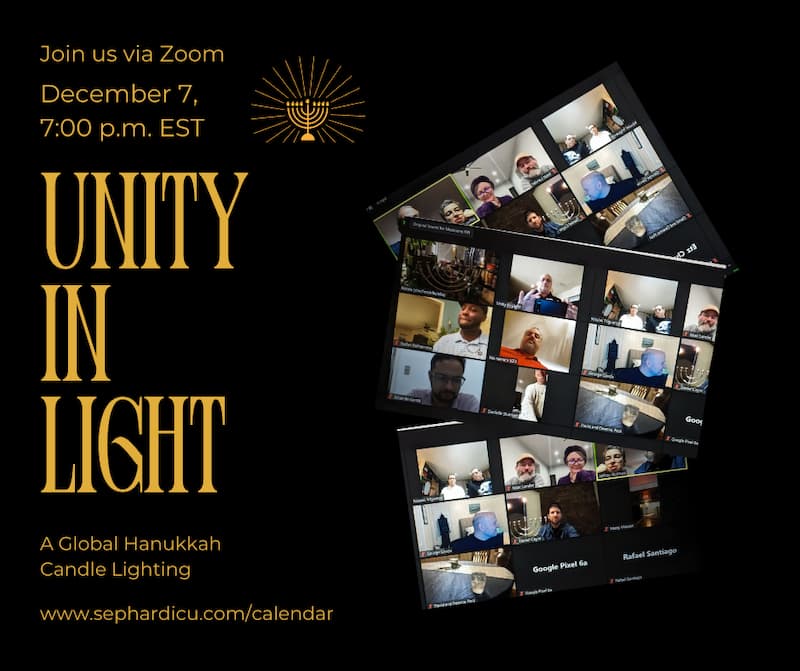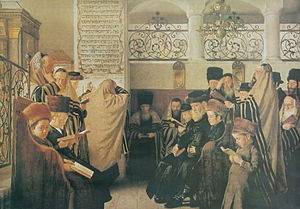In case you missed it, our first Unity in Lights Hanukkah Global Celebration was an incredible success, bringing together people from across the globe to commemorate the Festival of Lights in a unique and heartwarming way.
Embracing Unity Across Borders
Participants joined us from New York, Florida, Texas, Arkansas, Virginia, Jamaica, Brazil, Puerto Rico, Bahamas, Barbados, North Carolina, Vermont and more, creating a truly international celebration of Hanukkah. This virtual gathering provided a platform for individuals to light their Hanukkia together, sing traditional songs, and share cherished stories and poems. The event resonated with the spirit of unity, as participants from various locations embraced the opportunity to connect and celebrate their shared cultural heritage.
Ricardo’s Poetic Touch
One highlight of the celebration was Ricardo’s touching poem recital, adding a poignant and artistic touch to the festivities. The poem, capturing the essence of Hanukkah and the significance of coming together, became a focal point of reflection and inspiration for all those in attendance.
Bridging Distances, Building Bonds
As we navigated the virtual landscape, the event showcased the power of technology to bridge distances and unite Sephardic communities worldwide. It was heartening to witness the cultural tapestry unfold, blending diverse traditions into a harmonious celebration that transcended geographical boundaries.
Preserving Sephardic Heritage
The success of this event reaffirms the strength of Sephardic unity and the importance of preserving and sharing our rich cultural heritage. The Global Hanukkah Celebration demonstrated that, even in the face of physical separation, our global community can come together to celebrate the Festival of Lights, fostering a sense of belonging and shared identity.
Looking Ahead: Future Connections
Moving forward, we are excited about the prospect of organizing more events that connect Sephardic communities worldwide. The positive response to this global celebration encourages us to explore additional avenues for virtual gatherings, ensuring that our diverse community can continue to share, celebrate, and strengthen bonds across the miles.
Embracing the Light of Unity
As we bask in the glow of the Hanukkah lights, let us carry the spirit of unity forward, cherishing the connections made during this celebration. Our global community remains vibrant, resilient, and ever-connected, and we look forward to more opportunities to join together in joyous festivities that honor our shared traditions and values.

If you have any questions or would like to share your experiences from the Global Hanukkah Celebration, feel free to reach out. We value your input and are excited to continue building a sense of community that transcends borders. Stay tuned for more exciting events and celebrations that bring Sephardic communities together in spirit, if not in person.
Explore more of the richness of Hanukkah traditions and celebrations here.









Parashat Behar – Weekday Torah Reading (Moroccan TeAmim)